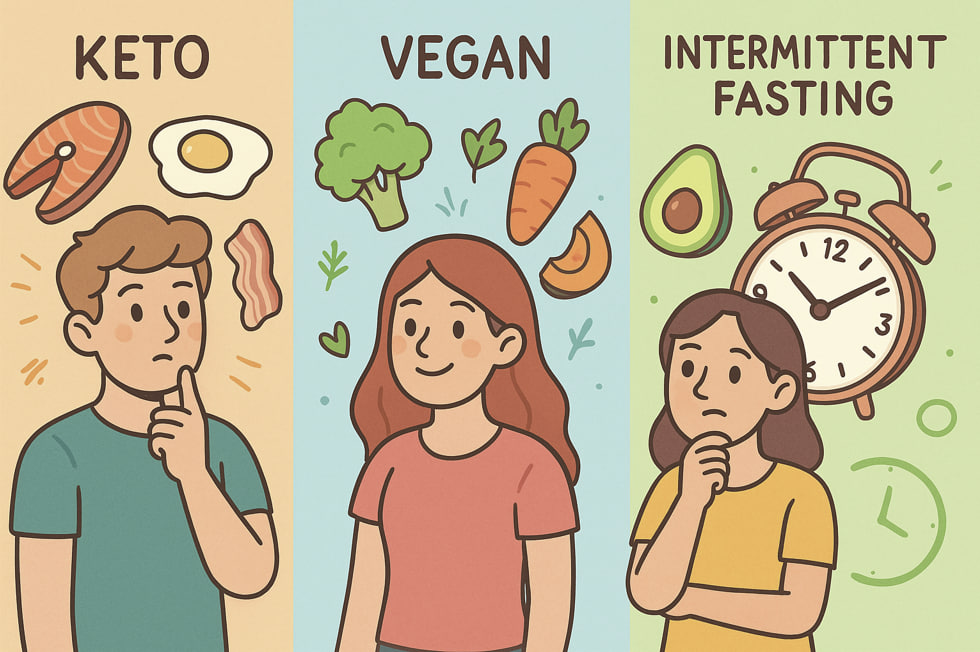In the search for better health, many people turn to structured eating patterns to lose weight, gain energy, or improve digestion. Among the most popular approaches are the keto diet, veganism, and intermittent fasting. Each method has its own benefits and challenges, and the right choice depends on your goals, lifestyle, and health condition.
The Keto Diet: Low-Carb, High-Fat
The keto diet focuses on drastically reducing carbohydrate intake and increasing fat consumption to shift the body into ketosis—a state in which fat becomes the main source of energy instead of glucose. It often leads to quick weight loss and reduced blood sugar levels.
Pros:
- Rapid weight loss
- Appetite suppression
- May improve focus and energy
Cons:
- Hard to sustain long-term
- Risk of nutrient deficiencies
- May cause the “keto flu” in the first week
Veganism: Plant-Based for Health and Ethics
Veganism eliminates all animal products from the diet, including meat, dairy, and eggs. People choose veganism for health, environmental, or ethical reasons. When planned well, a vegan diet can be rich in fiber, vitamins, and antioxidants.
Pros:
- Lower risk of heart disease and some cancers
- Supports ethical and environmental values
- High in plant nutrients
Cons:
- Potential vitamin B12 and iron deficiencies
- Requires careful meal planning
- Some find it socially challenging
Intermittent Fasting: When You Eat Matters
Unlike keto and veganism, intermittent fasting doesn’t restrict what you eat, but when you eat. The most common method is 16:8 (16 hours fasting, 8 hours eating window). Fasting may improve insulin sensitivity, promote cell repair, and support weight management.
Pros:
- Doesn’t require calorie counting
- May improve metabolism and longevity
- Fits various eating styles (even keto or vegan)
Cons:
- Can be hard for beginners
- Not ideal for people with certain medical conditions
- May cause low energy or irritability at first
How to Choose the Right One
Ask yourself:
- What is my goal—weight loss, health improvement, or ethical living?
- What can I realistically stick to?
- Do I have any medical conditions that limit my options?
In some cases, a combination works best—for example, eating vegan while practicing intermittent fasting. Always consult a healthcare provider before making major dietary changes.
Glossary
- Keto diet – A low-carb, high-fat diet designed to induce ketosis.
- Ketosis – A metabolic state in which the body uses fat for fuel instead of carbs.
- Keto flu – Temporary symptoms like fatigue and headache when starting a keto diet.
- Veganism – A lifestyle that avoids all animal-derived products.
- Intermittent fasting – An eating pattern that cycles between periods of eating and fasting.
- Insulin sensitivity – How effectively the body responds to insulin.
- Cell repair – The body’s process of replacing or fixing damaged cells.


